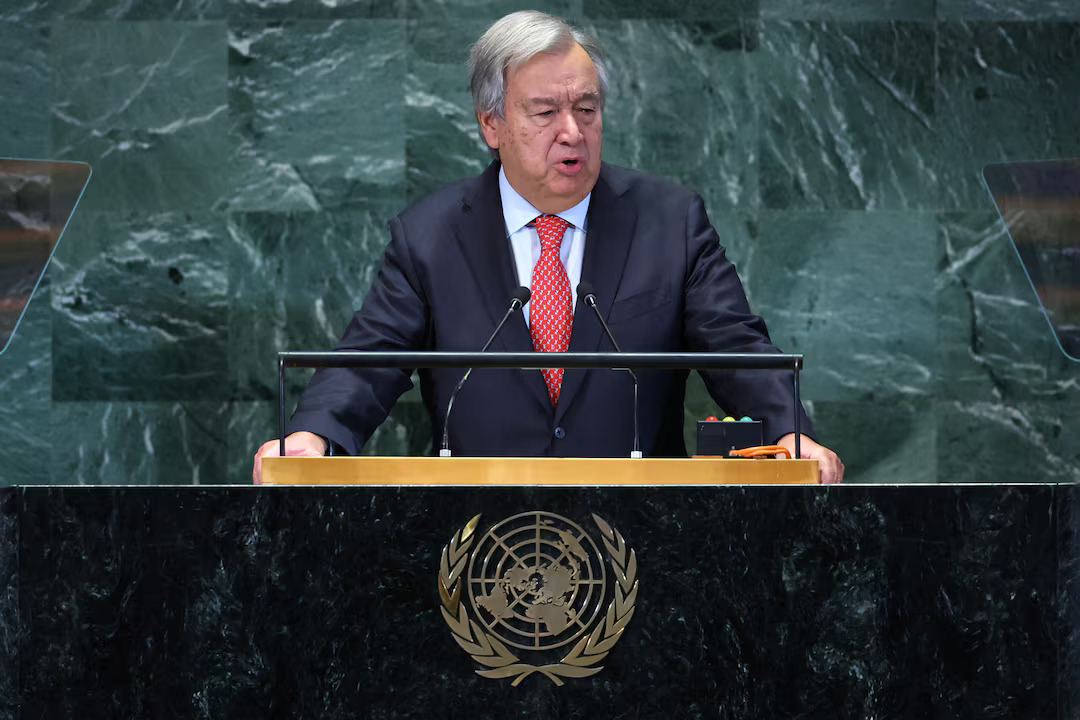UN raises alarm as sustainable development goals derail

With setbacks reported across key areas ranging from poverty and hunger to climate action and inequality, the UN now warns that the world is veering dangerously off-course.
The United Nations has issued a stark warning over the global state of development, declaring an emergency after revealing that just one-third of the Sustainable Development Goals (SDGs) are on track to be achieved by 2030.
With setbacks reported across key areas ranging from poverty and hunger to climate action and inequality, the UN now warns that the world is veering dangerously off-course.
A large portion of the global population, particularly the vulnerable majority in developing countries, is increasingly exposed to compounding crises.
The findings were laid bare during the ongoing High-Level Political Forum on Sustainable Development (HLPF), which convened in New York under the Economic and Social Council (ECOSOC).
The forum brings together global delegates to assess progress and chart a way forward.
According to the UN, efforts to reduce poverty and hunger have not only slowed but in many cases reversed. Progress on environmental goals is equally troubling, with the world failing to respond adequately to the interconnected threats of climate change, biodiversity loss, and pollution.
Several goals, including Zero Hunger, Life Below Water, Life on Land, Sustainable Cities and Communities, and Peace, Justice, and Strong Institutions, have recorded minimal or no forward movement. Meanwhile, some indicators, such as obesity rates and press freedom, have worsened.
Though gains have been noted in child health, especially in reducing under-five mortality, the broader healthcare picture remains uneven, with falling immunization coverage and persistent gaps in access to services.
Experts attribute the faltering momentum to a range of structural challenges, including conflict, weak governance, and insufficient financing. Emerging and developing nations continue to bear the brunt, lacking both the resources and resilience to sustain development efforts.
UN Secretary-General António Guterres has described the situation as critical but salvageable. “The SDGs are still within reach,” he said, “but only if we act decisively, together, and immediately.”
The HLPF is currently conducting an in-depth review of specific goals, namely SDG 3 (Good Health and Well-being), SDG 5 (Gender Equality), SDG 8 (Decent Work and Economic Growth), SDG 14 (Life Below Water), and SDG 17 (Partnerships for the Goals).
Delegates from 37 nations are presenting Voluntary National Reviews to highlight their progress and ongoing challenges.
One of the most pressing concerns raised at the forum is the chronic underfunding of ocean-related development. Despite the ocean’s essential role in food systems, climate balance, and local economies, SDG 14 remains the least funded of all the goals.
Elizabeth McLeod of The Nature Conservancy stressed the need for governance reform, community empowerment, and financial investment in ocean conservation.
Others, like Editrudith Lukanga of the African Women Fish Processors and Traders Network, called for the full implementation of human rights-based frameworks such as the FAO’s guidelines on small-scale fisheries.
Participants also underscored the role of traditional and Indigenous knowledge in marine conservation, calling for inclusive, gender-responsive ocean governance.
Coastal communities and youth groups advocated for stronger protection of marine ecosystems, increased funding, and a more just and ecological approach to ocean resource management.
Calls to increase ocean protection targets to 60% and establish compensation mechanisms for climate-induced loss and damage gained traction among civil society and youth representatives.
International bodies, including the IAEA and Interpol, discussed the use of science, technology, and law enforcement to combat marine pollution, illegal fishing, and deep-sea mining threats. Countries like Finland and Norway backed new global agreements aimed at reducing harmful subsidies and plastic waste.
The forum also highlighted the importance of integrated, science-based policymaking, with a strong emphasis on multilateral cooperation. Upcoming international summits including COP30 in Brazil, the G20 Summit, and the Third UN Ocean Conference were identified as key platforms to drive global progress forward.
Despite the grim statistics, the UN leadership remains hopeful. Guterres reaffirmed that with urgent, collective effort, the goals of the 2030 Agenda can still be salvaged, warning that failure is not an option for a planet already under pressure.
